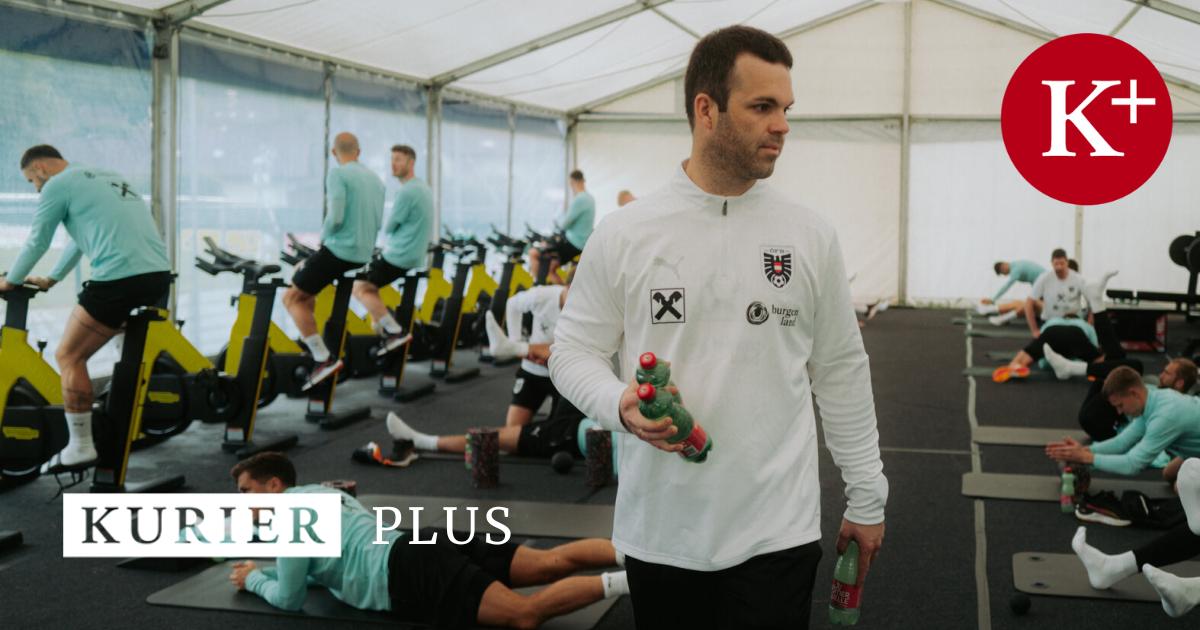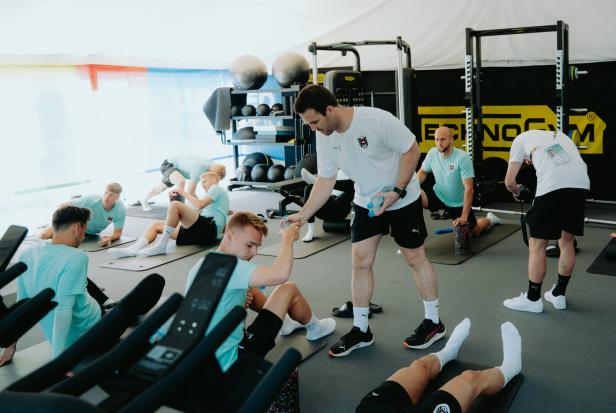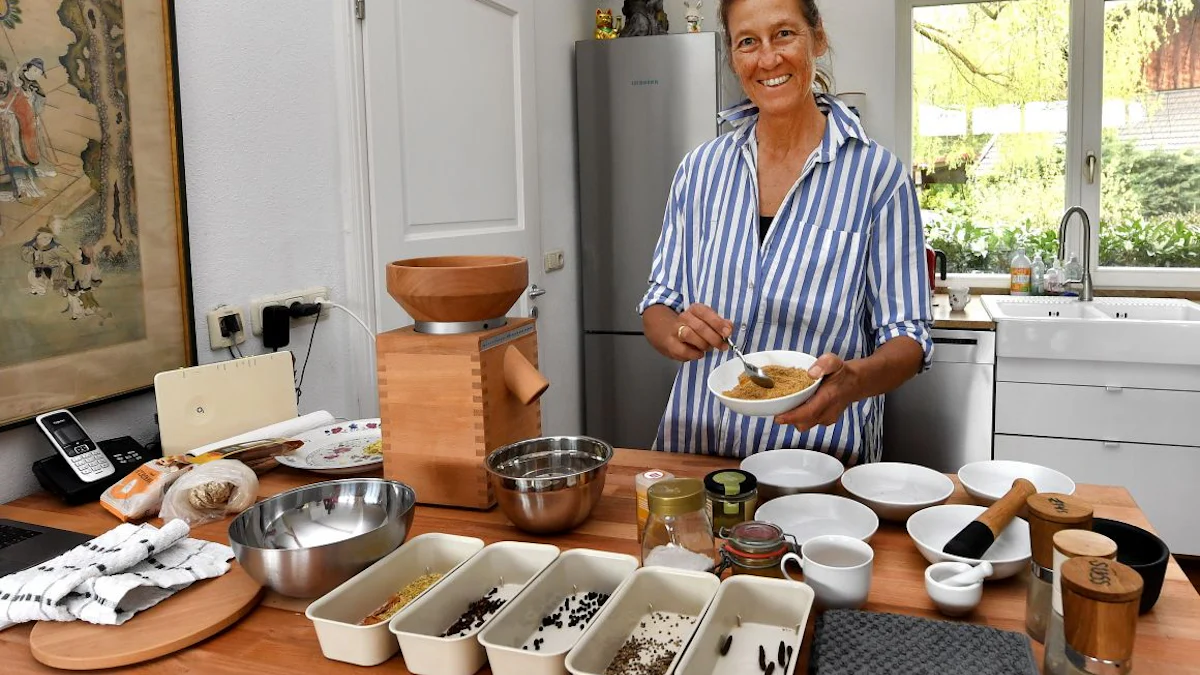Speaking of sleep, how important have the single rooms become for the players?
Many have small children at home. As nice as that is, the quality of sleep is not the same. They are happy about the peace and quiet. But that is a very individual issue and can also be a disadvantage if it is too quiet for someone. Depending on the team structure, such things can be important.
How individual are eating habits?
After relationships and sexuality, food is probably the most personal and intimate thing in a person’s life. And if the food tastes good for weeks and leads to more social interaction, that is a key factor in success. That’s why we put a lot of thought into what special features we can bring in from an emotional and taste perspective, in addition to all the performance issues.
You also work with individual athletes from a wide range of sports at the Vorarlberg Olympic Centre. How does your approach differ now that you are working with footballers?
My approach is always the same – individual and scientific. But in individual sports, you are ultimately 100 percent responsible for your own performance. That is why the awareness of doing everything for yourself to minimize mistakes is sometimes more deeply rooted than in team sports. When it comes to nutrition, however, some individual athletes also run the risk of overdoing it.
to be a perfectionist. The risk of slipping into disordered eating behavior is certainly much lower in football than in individual sports, where many people think they have to do everything perfectly.
And that’s bad?
Perfectionism is negative and food can only work and function if it is emotionally positive. If the food doesn’t taste good, it will work less well than if the same food tastes good for the same function. Unfortunately, sports nutrition is always reduced to functionality, but emotion is at least as important. This is one of the strengths of the ÖFB team, but our chef Fritz Grampelhuber is responsible for it.
Homemade chamois cheese sausages obviously always bring out the team’s emotions.
They are part of it. But even when we make a burger, we know exactly which bread and which meat we use and how the sauce is composed. And it is not a high-fat sauce. The player then has the feeling that we are eating junk food, but in reality they are getting exactly the nutrients we want. We know how much protein is on the plate and we know the salt content for rehydration. We have control over the preparation and also know what is in the chamois cheese sausage. The chef knows where and how the animals are raised and picks up the sausages himself. For the players, it is an emotional escape from healthy sports nutrition, but we are in control and direct it.
More and more top athletes are eating vegan. Are there any vegans in the ÖFB team and how do you view veganism in top-level sport?
There are vegetarians, but nobody is currently vegan. For me, two things are important. Firstly, vegan or mixed diet is not a statement of quality. I can eat vegan “like a pig” if, for example, I constantly eat industrial wheat pasta. And secondly, the emotionality mentioned above. If a diet means that I am always in a bad mood because it is stressful for me to stick to it and I am not able to compensate for any nutritional deficiencies qualitatively, then this diet is not practical for that person. Veganism is a very extreme diet, as is the carnivorous diet, which focuses primarily on meat. If I have no ethical, moral or religious reasons, I would weigh it up carefully. A high-quality vegetarian diet is not a problem in competitive sports and is much closer to a mixed diet than veganism, which often means a strong restriction in the choice of food. Vegan competitive athletes sooner or later come to the question: can I manage it quantitatively, qualitatively and
and emotionally positive?
And if not?
Then you can still ask yourself: Do I have to stick to this 100 percent or should I eat two chicken eggs a week or a very high-quality red meat once a month, which will cover my iron and B vitamin needs. Perfectionism and absolutism are problematic for me.
A look from elite sport to society. More than half of adults and a quarter of children in Austria are overweight. How can we counteract this?
In my opinion, health, well-being and performance must once again be given greater importance in society. And with that, the issue of exercise. Exercise is the quickest and most efficient miracle pill. In the past, we had to exercise in order to eat, and I ate in such a way that I could exercise again because I had to exercise in order to eat again. Since we have had cars, supermarkets, refrigerators and a good social system, this evolutionary pressure has gone. I can eat what I want and feel bad for five days afterwards. But that doesn’t mean I’m starving. Today, we have to make a conscious decision to exercise and eat in a way that makes us feel good.
But not everyone wants that.
Exactly, because there is a lack of interest or awareness, because health is also a matter of education. And unfortunately – and this is sad – it is also partly a matter of financial viability. Although we have an excellent health and social system, the financial viability of a healthy diet is not a given. This is a first dramatic contradiction. Furthermore, for many people, eating is not a pleasure but a quick snack. But it no longer stands for social interaction and great emotions. And thirdly, social networks still make us believe that with all sorts of extreme diets and edited photos, success can be achieved within days with seemingly no effort. This gives food, and therefore health, a negative, stressful touch. Even in children. A vicious circle from a nutritional psychology perspective. If we do not reverse this trend, this will only be the tip of the iceberg.






